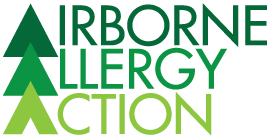Elizabeth’s Story
Elizabeth spent the day of her tenth birthday party in A&E recovering from an asthma attack. She was discharged late on a sunny summer evening with a sack full of medication; instinct told me that that was neither going to be the end nor the solution to her asthma.
From then on, whilst taking all the prescribed medication, over the next four months Elizabeth was admitted to A&E another four times for asthma, twice by ambulance and once for an overnight stay. At that time she was often tired and pale and her school attendance became very irregular as the absences mounted up. Twice I collected her from her year 6 residential journey at night; the second time was in an ambulance when she was alarmingly ill, struggling to breath and nearly unconscious.
From a very young age Elizabeth had terrible eczema. After endless applications of numerous creams many times each day and with no improvement, at the age of 10 months, Elizabeth was referred to a Paediatric Allergy Consultant at St Thomas’s Hospital. She was found to be severely allergic to cow’s milk and house dust mite. I was told to eliminate cow’s milk from Elizabeth’s diet and to deploy rigorous house dust mite avoidance methods. This was done and Elizabeth’s eczema completely disappeared very quickly. After a few year’s cow’s milk was gradually reintroduced into Elizabeth’s diet and over time I forgot about her allergies.
Elizabeth was mainly completely well then until the age of 7. Looking back I realise that she was prone to chest infections, but there was nothing else that was significant during that period. At 7 she had an asthma attack, apparently out of the blue, and we spent a day and a night in hospital. Elizabeth was prescribed Montelukast and inhalers and remained largely well for the following three years until the summer of her 10th birthday.
I knew that asthma and allergy co-existed but it wasn’t made clear to me that Elizabeth’s asthma could be allergic. The message from health professionals focussed almost entirely on medication and asthma and not at all on allergy. We know that prescribing the correct asthma medication is vital and saves many children’s lives, but it doesn’t provide every answer; some medications have adverse side effects and it is also very costly to the NHS.
When Elizabeth was at her worst in 2016 I discussed her problems with Catherine Sutton, who I met through a mutual friend. She described how she had helped her son, Edward, and I was reminded that I had previously, almost 10 years earlier, employed allergen avoidance with Elizabeth with very positive results. Why had nobody else suggested the same intervention this time?
From that point on Elizabeth continued to take her asthma medication as prescribed but I also treated her asthma as an allergy, not as something that she just had to accept could only be managed with drugs.
This involved:
Immediately requesting allergy testing, which confirmed that Elizabeth was still highly allergic to dust mite and was also very allergic to tree pollen and mildly to grass pollen.
Based on this information and through research and increased understanding I:
- Implemented airborne allergen avoidance methods, starting with the cheapest and easiest interventions and stepping them up whenever necessary and possible.
- Followed Netweather and gave anti-histamine when the pollen count was high and Elizabeth felt her chest was tight and breathing impaired.
- Took viruses more seriously based on an awareness of the interaction between virus, asthma and allergy.
- Encouraged Elizabeth’s school to invest in a HEPA filter vacuum cleaner.
- Used a prescription nasal spray after the diagnosis of allergic rhinitis was added to Elizabeth’s asthma diagnosis.
Increased knowledge and understanding of Elizabeth’s allergies, together with the correct medication, have greatly improved her asthma symptoms. She has had no A&E attendances for over a year; has been much healthier and happier; taken much less medication and had very good attendance at school. Elizabeth navigated the transition to secondary school without any problems and I have not had to miss anything like the same number of working days as this time last year. Asthma charity advice that allergen avoidance can be expensive and time consuming infuriates me. I can’t begin to add up how much time and money has been saved through sensible allergen avoidance.
